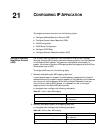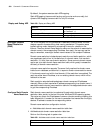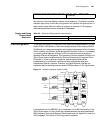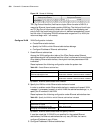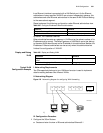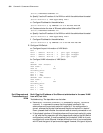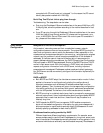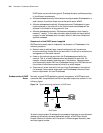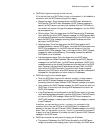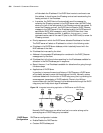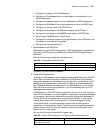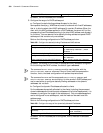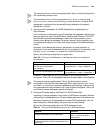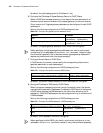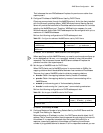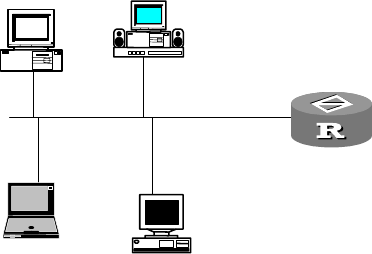
334 CHAPTER 21: CONFIGURING IP APPLICATION
DHCP server can provide three types of IP address allocation policies according
to the different requirements:
■ Allocate addresses manually: Administrators configure special IP addresses for a
small number of particular hosts such as the service server WWW.
■ Allocate addresses automatically: Allocate permanent IP addresses for some
hosts connected to the network for the first time and the addresses will be
allocated to the hosts for a long period of time.
■ Allocate addresses dynamically: Allocate some addresses to client hosts by
means of “leasing”. In this case, the expiry date is limited and clients should
re-apply for new addresses upon the expiry. Most of clients are offered such
dynamic addresses.
Occasions in which DHCP server is applied
DHCP service is usually used to implement the allocation of IP addresses in the
following occasions:
■ Network scale is relatively large, manual configuration will consume an
enormous working volume and at the same time, it is difficult to centralize the
management of the overall network.
■ Hosts on the network are more than the IP addresses supported by this
network. That is, a fixed IP address cannot be allocated to each host. For
example, Internet accessing operators are in this situation. Numerous users
must dynamically obtain their own IP addresses through the DHCP service and
the number of simultaneous users is limited to a certain degree.
■ There are only a few hosts with their own fixed IP addresses on the network
(for example, various server hosts need fixed IP addresses) while most hosts
have no requirement for fixed IP addresses.
Fundamentals of DHCP
Server
Normally, a typical DHCP application network comprises of a DHCP server and
numerous client computers such as PCs and portable computers, as shown in the
following figure:
Figure 124 Typical networking application of DHCP server
To obtain a legal dynamic IP address (the processes of obtaining an auto-allocated
address and a manually allocated address are similar), a DHCP client should
interact different information with the server in different stages. Normally, there
are three types of modes:
LAN
DHCP clients
DHCP server




